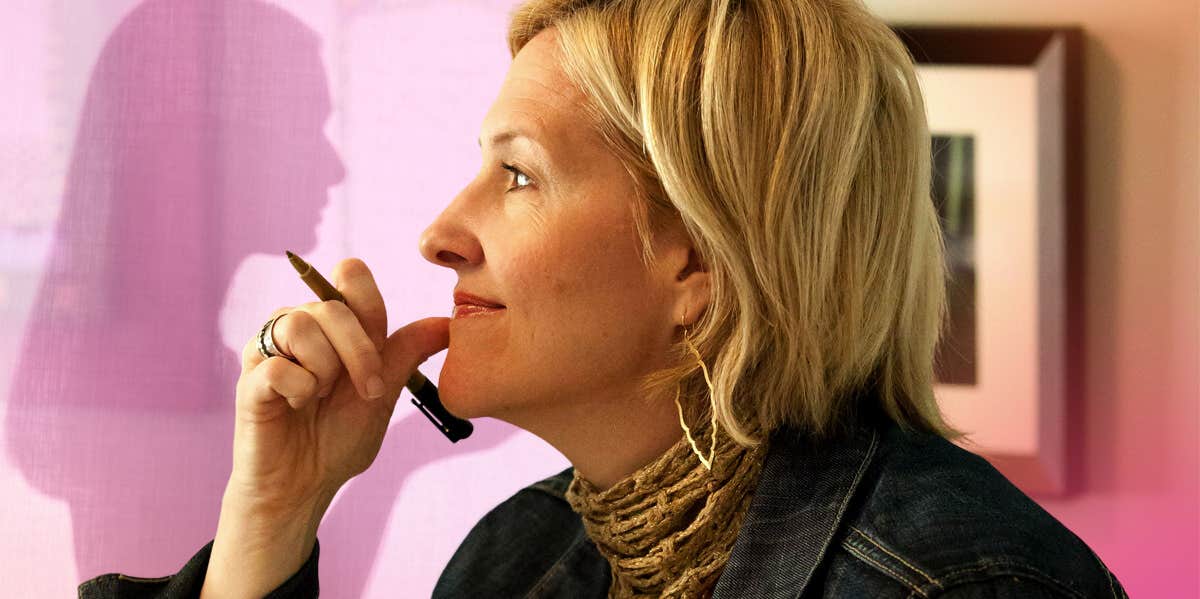Brené Brown Explains The Only Thing That Will Affect Change When 'Walking In Other People's Shoes' Isn't Enough
"It's not revolutionary but it's hard."
 BBeargTeam, CC BY-SA 4.0 / Wikimedia Commons
BBeargTeam, CC BY-SA 4.0 / Wikimedia Commons In her own words, author and research professor Brené Brown has “spent two decades studying courage, vulnerability, shame, and empathy.” In a clip posted on TikTok from her recent series, "Atlas of the Heart," Brown discussed one of the most important elements of maintaining authentic human connection.
Brené Brown explained the only thing that affects change because 'walking in other people’s shoes' isn’t enough.
Brown offered context for her academic and personal background, stating, “I can tell you right now that I have taught race, class, and gender and studied it for 25 years.”
She then acknowledged her innate inability to walk in someone else’s shoes who holds less privilege than she does, and the inevitable harm doing so causes.
Brown said, “I can’t walk in the shoes of someone that doesn’t have my privilege around my education, around my race, around the resources I have access to. I can’t do that, and to do it ends up causing people pain.”
RELATED: Why Brené Brown Says Marriage Will Never Be 50/50
Brown posed a question to the audience before her, asking, “What do we do instead of walking in other people’s shoes and trying to guess what they’re feeling?"
"It’s not revolutionary but it’s hard,” she acknowledged while waiting for an answer.
“Listen,” said someone in the audience. “Listen, “Brown reiterated. “And there’s a second part of it that we don’t do.”
 Photo: Anna Shvets / Pexels
Photo: Anna Shvets / Pexels
“Believe them,” a voice called out. “We believe people when they tell us what their experience in their shoes felt like, and we believe them when that does not reconcile with our own experience,” Brown stated. “And that is what we do not do.”
Brown explained why listening isn’t enough. We need to accept and validate others’ lived experiences, especially when they don’t match our own.
“We ask you, ‘What is that like?’ You tell us about being overlooked. You tell us about having your heart broken. You tell us about the microaggression. But that’s not my experience, so I’ve asked you, I’ve stayed curious, I tried to listen, but I don’t believe you, because too much of what I’m invested in is threatened if you’re telling the truth,” Brown said.
That last part of Brown’s statement is crucial. For people in power to maintain power amidst structures that are systematically unjust and inequitable, they must hold tight to a certain cognitive dissonance and deny that other people’s realities exist.
The comments beneath the TikTok post of Brown’s lecture affirmed the undeniable truth of her statement.
One person said, “I’ve noticed how much white people around me like to not believe something because it doesn’t match their experience.”
Someone else echoed that sentiment, noting, “They also can’t accept that the things we say we experience are things they have perpetuated and they can’t admit it.”
 Photo: Ketut Subiyanto / Pexels
Photo: Ketut Subiyanto / Pexels
Another person recognized the importance of “realizing the world isn’t what you thought it was because it’s not like that for others.”
“We do not get to decide what someone else’s lived experience is like,” said a different person.
“Listening and believing is key,” another individual noted. “But what about giving power back? Like, offering power, platforms, and opportunities is like basic reparations.”
That person makes a very valid point. Recognizing and affirming someone else’s reality is essential, yet doing so is just the beginning. In order to harvest actual equity, we must leverage the privileges we hold.
Creating a more just and compassionate world is possible. As Brown makes clear, the world requires us to not only listen but to truly believe.
Alexandra Blogier is a writer on YourTango's news and entertainment team. She covers relationships, pop culture analysis and all things to do with the entertainment industry.
